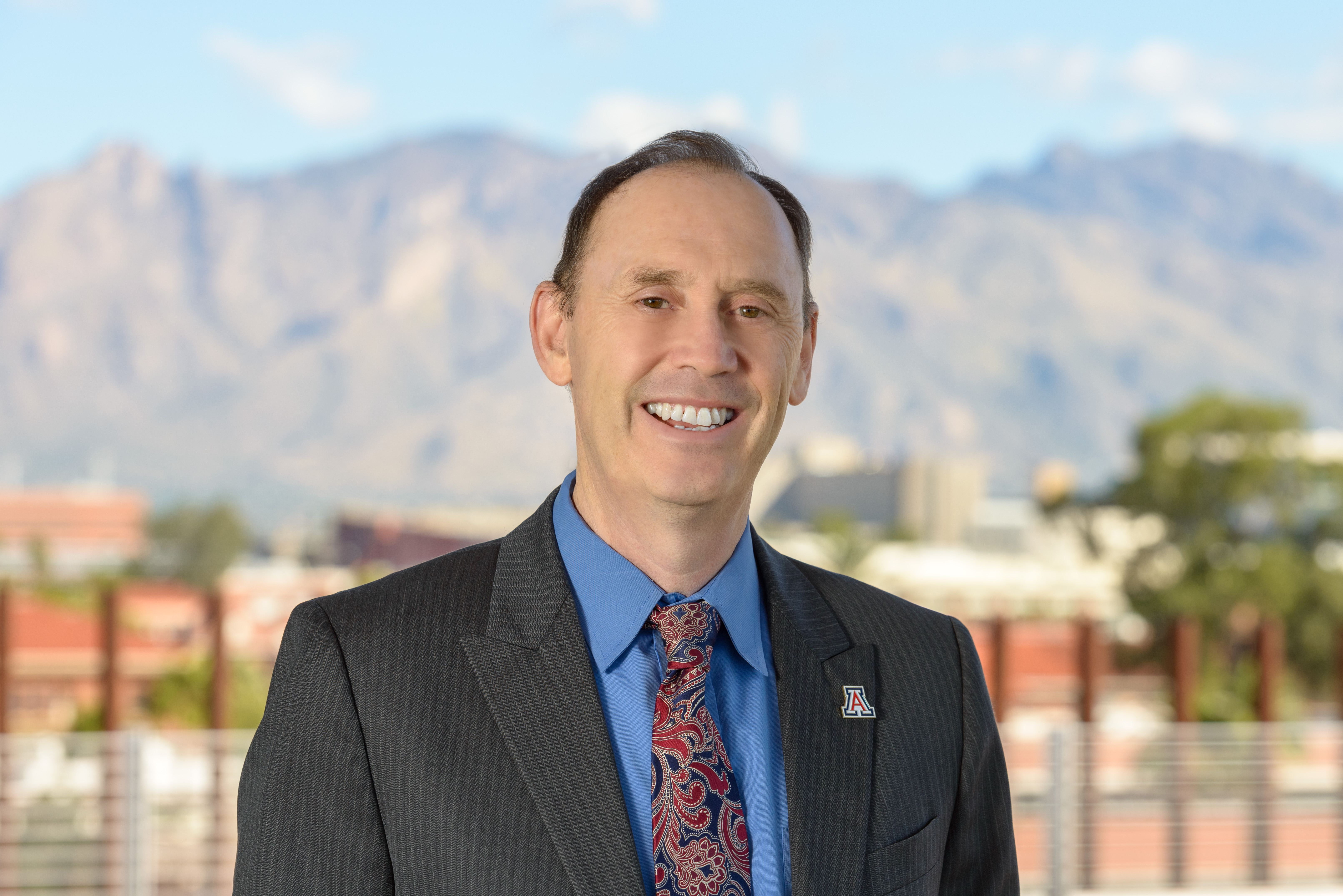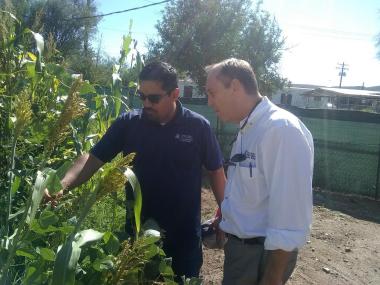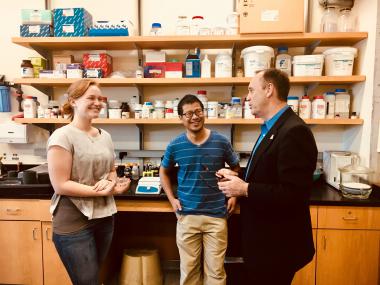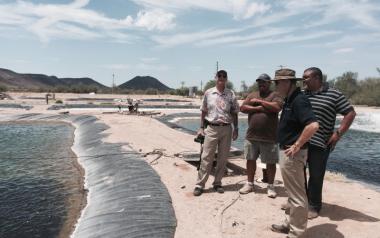Burgess honors ALVSCE legacy while building its future
Shane Burgess qualified as a Doctor of Veterinary Medicine from New Zealand’s Massey University at just 22 years old, but his accomplishment came with a harsh reality.
Burgess knew he would have to leave his home country to find a job because of a 17 percent unemployment recession affecting New Zealand at the time. In fact, of the 64 DVMs in his class, he and 60 others sought work all over the globe.
The life lessons of being both a first-generation college graduate and an “economic migrant” made a lasting impression on Dr. Burgess.
“I never even applied for jobs in New Zealand — there wasn’t any point,” Burgess said. “Growing up in the most geographically remote country in the world, I never remember a time not knowing I would be part of the ‘Kiwi diaspora.’ The late 1980s recession was simply another push. I know that a lot of our students and their families are also recent economic migrants.”
That experience started Burgess on a journey that took him from New Zealand to Australia, throughout Africa, England, Scotland, and to the United States, where he now serves as the University of Arizona Vice President for the Division of Agriculture, Life and Veterinary Sciences and Cooperative Extension and Charles-Sander Dean of the College of Agriculture, Life and Environmental Sciences.
Embracing the Land Grant ideal
Burgess joined UArizona in 2011 as the youngest dean and vice president to lead his division and oversee its diverse portfolio of academics, research, and outreach.
He established a foundational strategic intent to make the enterprise “The most sought-after place to be a part of,” which underpins three mission-specific strategic intents: Produce employable graduates, who can do jobs that do not yet exist and create new jobs; be a leading economic development engine for Arizona; and be most effective, efficient, responsive, flexible, and financially sustainable.
Under Burgess’ leadership, those strategic intents have manifested in programs and initiatives that will continue to serve CALES students, fulfill UA’s Land Grant mandate, and benefit the state of Arizona and the world for decades to come.
The UArizona provost noted this success in 2019, remarking that (CALES) "is the broadest college in terms of technology and techniques at the University of Arizona”— with its range of disciplines that spans the life sciences from traditional agriculture, biosystems engineering, natural resources, plant sciences, environmental science, pre-health, family and consumer sciences, and retail.
“The College of Agriculture, Life and Environmental Sciences was established in 1885 as Arizona’s first college, and it has remained a standard-bearer for the Land Grant University ideal of education for everybody, not only a privileged minority,” Burgess said. “Generations of our faculty, researchers and students have played vital roles as leaders, innovators, and economic drivers not only in Arizona but all over the world.”
The road to Tucson
Growing up in New Zealand’s dairy industry, Burgess didn’t even know academic careers existed, let alone dream of or plan on one. “I come from a blue-collar family; as a first-generation student I was expected to go to university to be able to leave the country and get a job.”
“Originally I really wanted to be a marine biologist,” he added. “But Jacques Cousteau wasn’t hiring.”
Burgess spent 13 years in the private sector after qualifying as a veterinarian. His first job, like with many economic migrants, wasn’t in his profession. He built fences in the Western Australian deserts—"Ironic for the grandson of an Australian jacaroo,” Burgess said, referring to his ancestor’s time as an apprentice rancher.
He went on to manage veterinary clinical practices in Australia and the United Kingdom. While working full-time in the biomedical and biotech sector, he earned his Ph.D. in three disciplines—virology, immunology, and cancer biology—conferred by the University of Bristol Medical School.
Burgess then led the diagnosis reporting office of the U.K. World Reference Laboratory for Exotic Diseases during that nation’s 2001 foot and mouth disease crisis, reporting to the office of Prime Minister Tony Blair. Burgess was awarded the Institute for Animal Health Director’s Award for Service.
He joined academia for the first time in 2002 when he came to the United States as an assistant professor in Mississippi State University’s College of Veterinary Medicine.
“At that time, I didn’t know the difference between an assistant, associate or full professor; I had no idea that there was such a thing as tenure,” Burgess said.
Seven years after starting again at the bottom of the pecking order as an assistant professor, Burgess was a tenured full professor, College of Veterinary Medicine associate dean, and had established and was directing the university’s Institute for Genomics, Biocomputing and Biotechnology.
Student focused
The University of Arizona recruited Burgess from Mississippi State to succeed Dean Eugene G. Sander in the summer of 2011. Burgess brought rich backgrounds in innovation, entrepreneurship, management, and leadership from global private sectors and U.S. academia.
By the time he arrived in Tucson to begin his new post, Burgess knew all about his division’s Land Grant University heritage, its incredibly strong commitment to students and employees, world-class research, outreach to every corner of the state through Cooperative Extension and the Experiment Station, and deep connection to alumni and stakeholders.
“It has been an amazing opportunity professionally and for our family to come to Arizona and Tucson,” said Burgess, who is the inaugural Charles-Sander Dean’s Chair, named in honor of longtime Dean Eugene G. Sander and endowed by a $2 million gift from CALES alumnus Robert F. Charles and his wife Julia M. “Judy” Charles.
To foster student success and meet workforce demands, Burgess has overseen the addition of eight undergraduate degrees: Applied Biotechnology, Biosystems Analytics and Technology, Fashion Industry Science and Technology, Nutrition and Food Systems, Personal and Family Financial Planning, Precision Nutrition and Wellness, Nutrition and Human Performance, and Agricultural Systems Management (UArizona Yuma).
He guided the development of online degree programs in CALES, one of the university’s two global campuses in China, which offers joint bachelor’s degrees in applied biotechnology, environmental science and plant sciences, and the university's global campus in Kazakhstan, which offers joint bachelor's degrees in applied biotechnology, plant health, plant science, and food safety.
Burgess also led the last chapter in establishing UArizona’s highly innovative College of Veterinary Medicine and served as its interim dean.
In 2015, CALES completed a donor-funded $1.9 million remodel of the Forbes building lobby. The project celebrated the building’s 100th year by becoming the embodiment of the college’s commitment to professionalizing student support and focusing on the outcome of graduate employment, and not simply degrees, through Career and Academic Services. The additions of the Gary and Barbara Pasquinelli Career Center and Perricone Family Academic Advising Center were cornerstones to the Forbes remodel under Burgess.
Recalling his own experiences in higher education and the uncertainty that comes with being a first-generation student, Burgess worked with the Academic Advising Center to establish First CATS, a support program for first-generation CALES students.
“I’ve lived the challenges faced by first-generation students — what it means to go to college and not have a family that understands what college is all about,” said Burgess.
Building partnerships
Inspired by state industry leaders and UArizona’s Land Grant mission, Burgess envisioned and led the creation of two unique entities that directly serve Arizona: The Yuma Center of Excellence for Desert Agriculture (YCEDA), a public-private partnership, and the Natural Resource Users Law and Policy Center (NRULPC), a collaboration between Cooperative Extension and the UArizona James Rogers College of Law.
“Through our academics, research, and public outreach, the Division of Agriculture, Life and Veterinary Sciences, and Cooperative Extension is extremely well-positioned to make an impact by developing future leaders, contributing to the state’s economy, and taking on today’s biggest challenges,” Burgess said. “I am proud of the progress we’ve made on all those fronts.”
Traveling ‘This amazing state’
For Burgess, leading UArizona’s Division of Agriculture, Life and Veterinary Sciences, and Cooperative Extension often means leaving his office in the Forbes building and traveling around Arizona. He routinely drives 15,000 miles per year visiting Cooperative Extension offices in all 15 of the state’s counties and five Tribal Nations, plus Arizona Experiment Station sites, along with university private partners and stakeholders.
“The best part of my job is getting out and about amongst our people in this amazing state and seeing the exceptional impact our employees and graduates make throughout the whole of Arizona — they are truly transforming lives and the state’s economy,” Burgess said.





